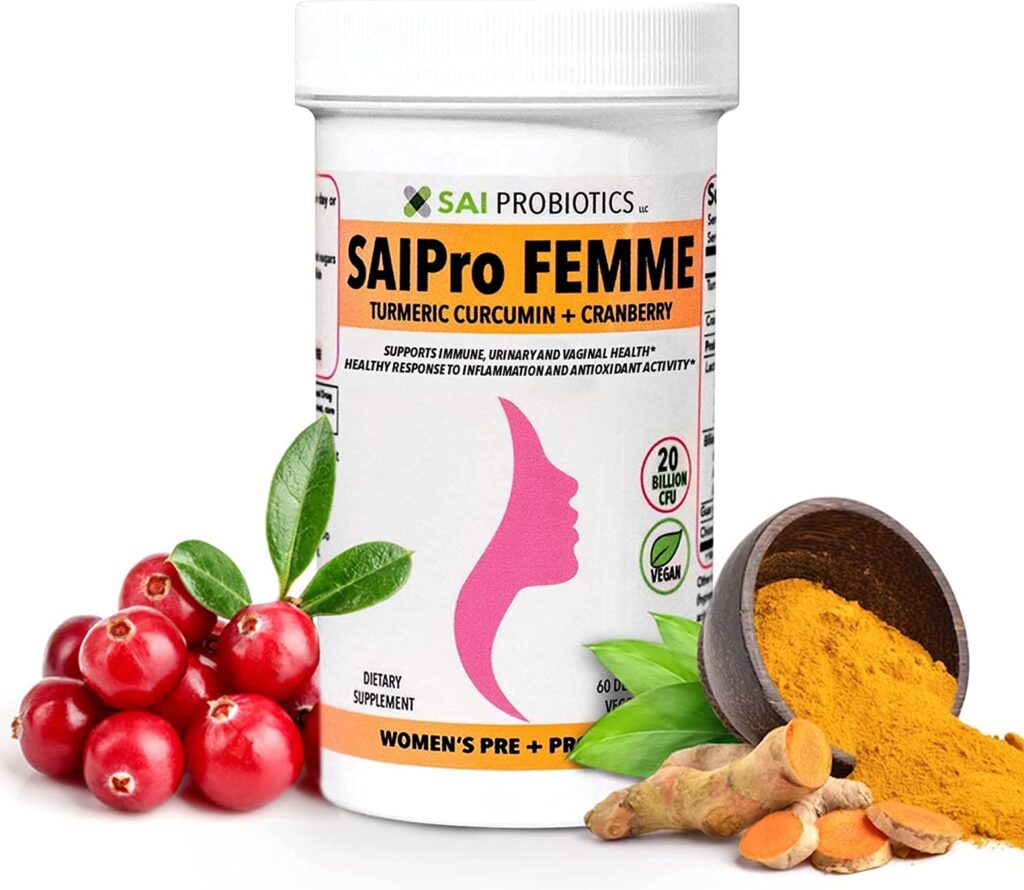Probiotics are often touted as one of the most important additions to your everyday diet, and for good reason! Probiotics are known to offer a seemingly endless list of health benefits. From supporting gut health to aiding in digestion and maintaining your emotional well-being, they come with a set of perks that are hard to ignore. They are especially great for women. Why? Because, while everyone suffers from imbalances in their gut microbiome every now and then, women tend to suffer from digestive and GI issues more frequently than men. In fact, according to the Gastrointestinal Society, women are twice as likely to have irritable bowel syndrome (IBS) than men1. Furthermore, menopause and even menstruation can worsen certain types of digestive issues and lead to things like constipation and bloating. Scientists are discovering that menopause often changes the constitution of your microbiome – the set of good bugs that live in your gut and help you digest food2. Women may also suffer from imbalances in their vaginal flora that are linked to the occurrence of UTIs3. But fear not! One of the most powerful ways to tackle many of these issues head on is to take cranberry probiotic supplements. Cranberry, combined with good bacteria, can restore balance in your gut and vaginal microbiome, improving several aspects of a woman’s health in a holistic way.
Another increasingly common reason for taking probiotics is that women are more likely to receive antibiotics than men4. Antibiotics have the potential to destroy good bacteria in your gut and disrupt the microbiome. Probiotics can help counter this.
Let us look at a few reasons why women should take probiotic supplements.
Improves gut health
This is perhaps the most important reason why probiotics are essential. Studies have shown that the complexity of female physiology, and the impact of female hormones mean that GI issues are more prevalent in women than men, which increases the risk of digestive disorders. Probiotics can also help regulate bowel movements, ensuring your body is rid of toxins and waste, which can better help protect against many conditions. Thus, probiotics should be an especially important part of a woman’s daily regimen to help promote a healthier gut and provide all the associated benefits.
Good for vaginal health
Your vaginal health depends on many types of bacteria, particularly Lactobacillus. Supplementing with probiotics containing this strain can help maintain an appropriately low pH level in your vagina to ensure optimal health of your microbiome. A lower pH level (higher acidity) can fend off bacterial infections as well as reduce the risk of some sexually transmitted diseases.
Benefits for your skin
For healthy, radiant skin, probiotics are a must. If you suffer from common skin concerns, such as acne and eczema, taking probiotics can be beneficial. Certain strains as well as the nutritional content in probiotics can help treat these concerns while also fighting skin damage and promoting healing. Furthermore, studies show that women who take probiotics during pregnancy have a lower risk of having children who will develop inflammatory skin conditions such as eczema5.
When choosing a probiotic supplement, whether a cranberry supplement or otherwise, it is important to keep in mind that different strains offer different benefits. So, depending on your health concern, do your research to find a supplement with probiotics that are targeted to your specific needs. Find a reliable brand that offers products using ingredients and strains that have undergone testing and research so you can have a better understanding of what a supplement is doing and how it’ll impact your body.
SAI Probiotics offers a premium women’s daily probiotic that doubles as a cranberry and turmeric supplement that contains 8 scientifically-backed probiotic strains supercharged with anti-inflammatory and antioxidant properties for a complete approach to improving your gut, feminine and immune health. This supplement is 100% natural, vegan, and free of all major allergens.
Shop now.
References:
https://badgut.org/information-centre/a-z-digestive-topics/gender-gut
https://www.ncbi.nlm.nih.gov/pmc/articles/PMC7990138


